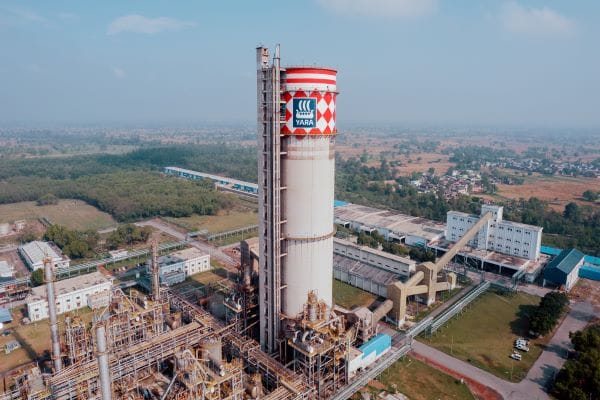New Delhi, September 2025 – Norwegian fertilizer giant Yara International India specialty fertilizer imports 2025, a 25% rise in specialty fertiliser imports in 2025, targeting 140,000 tonnes annually. This growth comes despite tightening Chinese export restrictions, supported by India’s booming horticulture sector.
Specialty Fertilizer Imports Cross 100,000 Tonnes in 2025
From January to September, Yara India imported 100,000–120,000 tonnes of specialty fertilisers. The figure is expected to reach 135,000–140,000 tonnes by year-end, according to Sanjeev Kanwar, Managing Director, Yara South Asia.
“Farmers are shifting to fruits and vegetables. These crops are more profitable and drive the specialty fertiliser market upward,” Kanwar told PTI.
China’s Export Restrictions to Tighten Again
The Soluble Fertilizer Industry Association noted that China temporarily resumed exports, offering short-term relief. But from next month, Beijing will impose stricter inspections and consignment delays, limiting supply.
Yara, once dependent on China for 70–80% of its imports, has been forced to adapt. Earlier disruptions from COVID-19 and the Russia–Ukraine war highlighted the risks of concentrated sourcing.
Yara International India Specialty Fertilizer Imports 2025: Norway and Middle East Step In
To counter disruptions, Yara has diversified its supply base. Currently, 70% of imports come from Norway, mainly calcium nitrate. The rest comes from Middle Eastern suppliers of sulphate of potash and potassium nitrates.
This shift has extended supply chains and increased working capital needs. However, Yara has kept fertiliser prices stable for Indian farmers over the past six months.
“About 70% of specialty fertilisers are now sourced from our Norwegian plants, including ramped-up calcium nitrate. The balance comes from Middle Eastern suppliers. This helps avoid cost pass-through to India’s 80% import-reliant market,” Kanwar said.
Specialty Fertilizer Imports in 2025 to Rise Further
Kanwar confirmed that Yara International India specialty fertiliser imports 2025 will increase by about 25% compared to last year.
“The market is booming because farmers prefer fruits and vegetables. Specialty fertiliser demand will continue to grow,” he added.
Focus on Non-Subsidised Specialty Fertilisers
Yara targets 15–20% growth in its non-subsidised specialty fertiliser segment this fiscal year. In FY24, Yara India recorded revenues of ₹5,342 crore, with subsidies continuing to shape overall earnings.
Kanwar emphasized that specialty fertilisers remain Yara’s core growth focus. Despite global revenues declining to USD 13.93 billion in 2024, the company aims to triple its Indian business by 2026, supported by an 8–9% compound annual growth rate (CAGR).
Global Challenges: MAP Shortage from EV Battery Industry
A global shortage of mono-ammonium phosphate (MAP) has emerged as supplies are diverted to the electric vehicle battery industry. However, Yara has largely avoided major disruptions.
“We’re looking at Middle Eastern sources to step in. MAP is being diverted to EV batteries, which creates a challenge, but our supply is stable,” Kanwar said.
Make in India Plans for Micronutrients
While Yara has no immediate plans for water-soluble fertiliser production in India, it is exploring a micronutrient manufacturing facility for global exports under the Make in India initiative.
Regulatory hurdles remain the biggest barrier. “It takes almost four to five years to register a new fertiliser product in India. That slows down investment decisions,” Kanwar noted.
No Major Expansion at Babrala Urea Plant
Yara operates a 1.3 million tonne urea plant at Babrala, Uttar Pradesh. The company has ruled out major capacity expansion there, focusing instead on operational efficiency.
“The specialty fertiliser business should grow 15–20% this year. We are conducting 40,000–50,000 farmer meetings and 4,000–5,000 field demonstrations to promote the Yara crop program,” Kanwar added.
Strategic Supply Focus
Yara supplies 70% of India’s specialty fertiliser imports from Norway. A planned China-based manufacturing facility for water-soluble fertilisers was shelved due to geopolitical tensions.
Kanwar ruled out major technology tie-ups with Belgium or Morocco. “Seventy percent comes from our own production, while the balance 30% is covered through long-term agreements worldwide,” he said.
India’s Subsidy Framework Supports Growth
India’s fertiliser subsidy system has remained stable since 2019, with no payment delays. This has allowed Yara to maintain price stability for farmers and ensure timely imports of specialty fertilisers.

